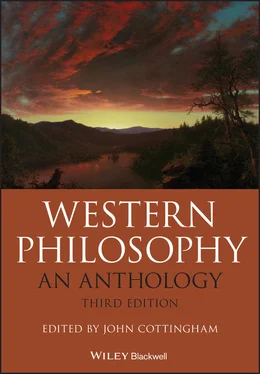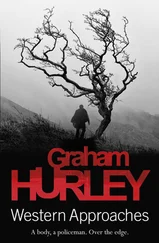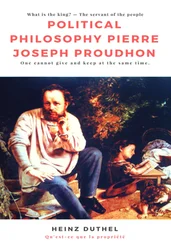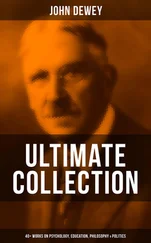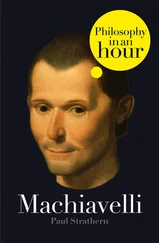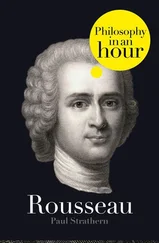These points notwithstanding, there may still be some who may have certain reservations about the very idea of introducing students to philosophy by way of an anthology, as opposed to through the intensive study of complete texts. Those who (like the present writer) were taught by this latter method will know that it has a very great deal to recommend it. Nevertheless, the vast expansion in numbers in tertiary education during the late twentieth century has required many philosophy teachers to rethink their approach. This has been particularly true in the United Kingdom. A typical annual philosophy intake in most British universities used to comprise a relatively small number of students who, even in their first year, could be taught in specialized classes and tutorials. But nowadays introductory classes can run to hundreds, and for groups of this size no library, however well equipped, can furnish enough copies of books and articles to support the traditional tutorial system based on the weekly reading list. Many teachers in Britain have thus had to accept what their counterparts in North America and elsewhere have long taken as given: the need for a single compendious volume of readings which will supply the materials for an entire introductory course in philosophy. Such volumes do not, of course, preclude students from reading more widely (as every good teacher will want to encourage them to do); but they at least ensure that some of the basic textual materials are to hand.
Although the volume is a stout one, the constraints of space are nevertheless such that many hard choices have been necessary. To begin with, this is a collection based on ‘classic’ texts, and this means that only a relatively small percentage of the extracts are taken from the work of philosophers from the recent past. To have given a representative selection of today’s proliferating philosophical theories and debates would have required virtually an entire volume corresponding to each of the divisions of the present book. The classic materials featured here are nevertheless designed to provide a good base for understanding more recent developments, and the commentary accompanying each part of the volume often includes brief glances forward to later theories. Even within the terms of its chosen framework, however, the selection presented here cannot make any claim to completeness: the schema of twelve extracts in each of the twelve parts yields that pleasingly duodecimal aggregate traditionally termed a ‘gross’ (which gives the book a considerably wider scope than most recent anthologies); but I am well aware of the very many candidates for inclusion that have had to be omitted. If specialists, turning to their chosen authors, are shocked by the brevity of the extracts, or the severity of the abridgements, I can only plead that they bear in mind that nothing in the present project is designed to stop students going on to make a more detailed and thorough study of the authors represented here. On the contrary, it is my earnest hope that students who might have been overwhelmed by stern injunctions to read ‘all or nothing’ will be sufficiently excited by some of the extracts here to turn to the full texts, and to the suggestions for further reading which are provided at the end of each Part.
As well as the abridging noted in the previous paragraph, in preparing the extracts for inclusion in this volume I have not hesitated to modify spelling, punctuation and layout to make the material more readily accessible to the modern reader. It is of course vital that critical editions should preserve the original texts for scholarly use, but the aims of an anthology such as this are rather different; and since so many long-dead Greek, Latin, French and German writers are in any case presented here in modern English translations, it seemed over-exacting to insist on antiquated spelling and grammar just for those philosophers who wrote in English. I did indeed at one point consider ‘translating’ the extracts from such writers as Locke and Hume (that is, providing completely new modern English versions), but in the end (despite the urgings of some colleagues) resisted this radical measure, contenting myself instead with a few minor modifications of phrasing in places where the original was so antique that it might pose a major obstacle to the modern student reader. Some will feel I have not gone far enough; others will no doubt express outrage that a single comma has been altered. Bearing in mind, as always, the readership for whom this book is intended, I have tried to follow an Aristotelian mean between opposing culinary vices: my aim has been to avoid making the fare either blandly over-processed or harshly indigestible.
As for the principles of selection, since it would be impossibly ponderous to defend each decision, chapter and verse, I will simply observe that one overarching aim has been to try to make sure that the materials within each Part of the volume hang together as far as possible; rather than leaving readers to sink or swim, as is often done, I have tried to guide them through the extracts, linking the ideas together, so that by the end of each Part they should be able to move towards achieving a coherent, if necessarily schematic, overview of the relevant branch of the subject. Further details of the plan of the book may be found in the ‘Guidance for Readers and Format of the Volume’ (pp. xxviii–xxx, below).
I am very grateful to the publishers and individual authors and translators named in the footnotes at the start of each extract for permission to reproduce the materials indicated. Further details are given in the Acknowledgements (pp. xxi–xxvii, below). (In a number of cases, the translations from the original Greek, Latin, French and German texts are my own.) As noted above, for the purposes of the present volume it has been necessary to abridge some of the extracts, and in the interests of clarity or consistency I have sometimes modified the original spelling and punctuation, and made occasional minor changes in phrasing. Further details may be found in the footnotes accompanying each extract. Finally, I should like to acknowledge here the wealth of helpful advice I have received from friends and colleagues in the course of preparing this volume. I am especially grateful to John Ackrill, John Andrews, Doug Buchanan, Edmund Burke, Harley Cahen, Enrique Chávez-Arvizo, Max de Gaynesford, Hanjo Glock, John Haldane, Brad Hooker, Andrew Mason, Richard Norman, David Oderberg, Derek Parfit, Harry Parkinson, John Preston, Michael Proudfoot, Steve Smith, Sandy Stewart, Jim Stone, Mark Tebbit and Rosemary Wright. I am greatly indebted to Enrique Chávez-Arvizo for checking the ‘Notes on the Philosophers’, and for preparing the index.
Preface to the Second Edition
The original edition of 1996 contained ten Parts of ten extracts each. All the material that appeared in the first edition has been retained in full, but the volume has been substantially enlarged for this second edition.
In the first place, each of the existing Parts now contains two additional extracts, bringing the total number of extracts per Part to twelve instead of ten. The decision to use more modern material for these further extracts was relatively easy, not just because many philosophers and students find a special excitement in more recent developments, but also because philosophy is a living and constantly evolving subject, and it is important for those studying the Western philosophical tradition to be aware that it continues to develop. The roots and trunk of the old plant are immensely valuable in themselves, but also because they put forth fresh shoots. That said, the selection of the new, more recent, materials was far from easy, since unlike the great classics of the past, they have yet to prove their enduring worth; what is more, today’s philosophers are notoriously at odds about the relative importance of the proliferating current trends in the subject. I cannot hope to please everyone, but I have tried to select pieces that, firstly, will give some sense of where each of the respective branches of the subject is going, and, secondly, will stand some comparison with their august predecessors – either because since publication they have already achieved something of the status of instant classics, or else because they are at least worthy representatives of distinctive strands of philosophical inquiry that seem likely to endure.
Читать дальше
